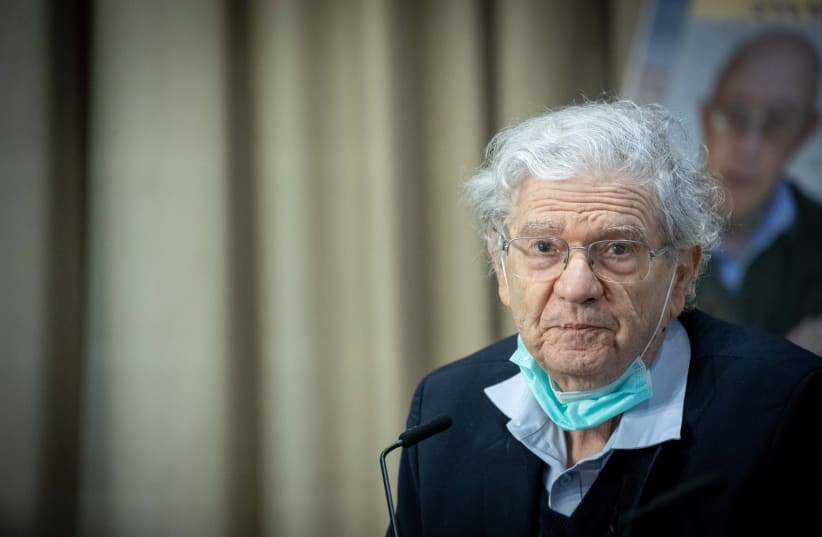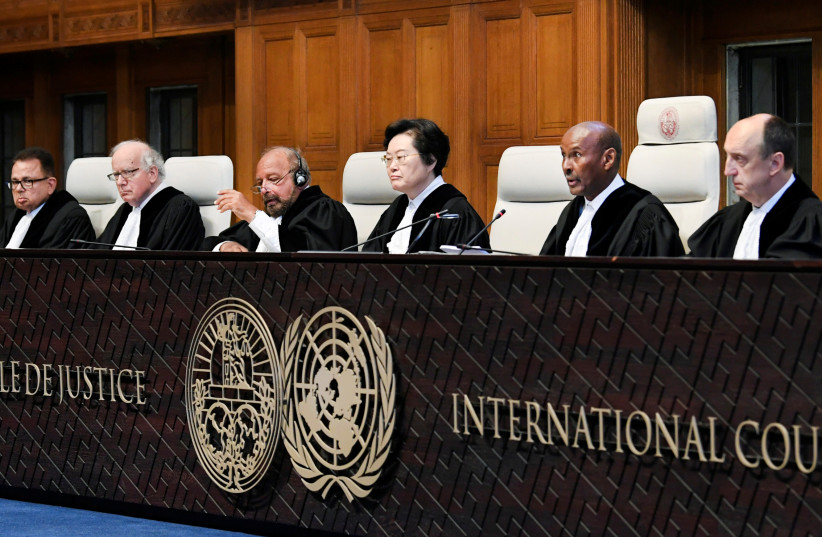In this explainer, we offer a comprehensive breakdown, offering essential insights ahead of this weekend’s crucial discussion.
BINI ASHKENAZI JANUARY 7, 2024 21:15

Former Chief Justice of Supreme Court and holocaust survivor Aharon Barak at the President’s residence in Jerusalem, on April 4, 2021.(photo credit: YONATAN SINDEL/FLASH90)The International Court of Justice in The Hague is set for a significant session this Thursday, where it will deliberate on the lawsuit South Africa has brought against Israel.
In this explainer, we offer a comprehensive breakdown, offering essential insights ahead of this weekend’s crucial discussion.
Why send an Israeli judge to the hearing? In such international legal settings, countries involved – either as plaintiffs or defendants – have the prerogative to appoint a judge to the panel. This panel, inclusive of fifteen judges from various global nations, will now include Israel’s former Supreme Court President, Aharon Barak.
The Israeli defense team
Joining Barak is Prof. Malcolm Shaw, a 76-year-old British lawyer. In addition, in Israel’s defense are two notable figures: Gilad Noam, Deputy International Chief Prosecutor and Tal Baker, Chief Prosecutor of the Foreign Ministry.
Why Aharon Barak? His selection comes due to his esteemed stature as one of Israel’s most prominent judges. His judicial tenure, especially in the Supreme Court, is marked by significant rulings on security and the IDF. Moreover, Barak’s legal writings and rulings are internationally respected, particularly in human rights – a crucial focus of the court.

Barak was preferred over Dorit Beinisch, his successor as Supreme Court President, and other proposed candidates. These nominations were part of a meticulous process led by a legal team tasked with determining Israel’s representatives at The Hague. Ultimately, Barak’s nomination, strongly recommended by many, was endorsed by Attorney-General Gali Baharav-Miara and Prime Minister Benjamin Netanyahu.
How does the ICJ operate and make rulings?
The International Court of Justice functions with a bench of 15 judges from different countries, ensuring diverse legal perspectives. Chosen by the UN’s General Assembly and Security Council, these judges serve nine-year terms.
Advertisement
Every three years, elections refresh five of these positions. This structure not only reflects the continental legal system of Europe but also accommodates the common law traditions of the United States, Britain, Canada, India, and Israel, alongside other legal systems.
The court’s proceedings mirror those of conventional courts. Hearings commence following a state’s formal complaint submission, detailing the petition’s rationale and its request for adjudication. The defendant state is then required to respond and challenge the claims.
The upcoming hearing, a matter of significant international interest, will be accessible via live broadcast on the UN’s internet television channel.
Content retrieved from: https://www.jpost.com/israel-hamas-war/article-781191.